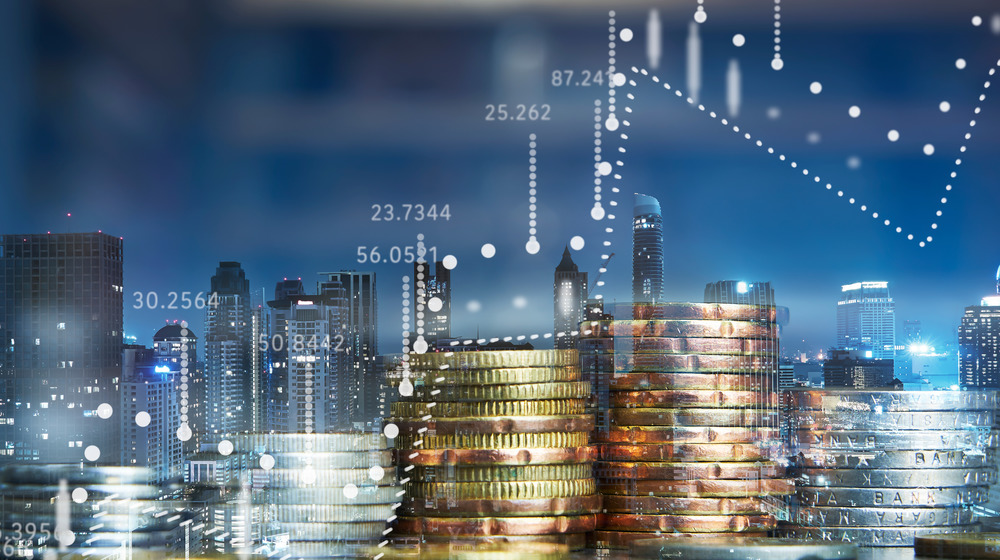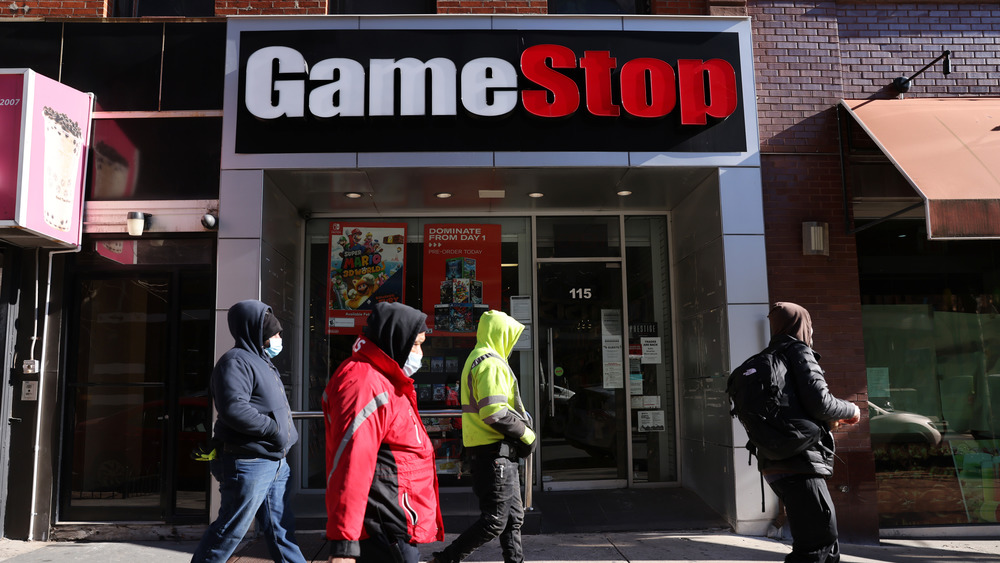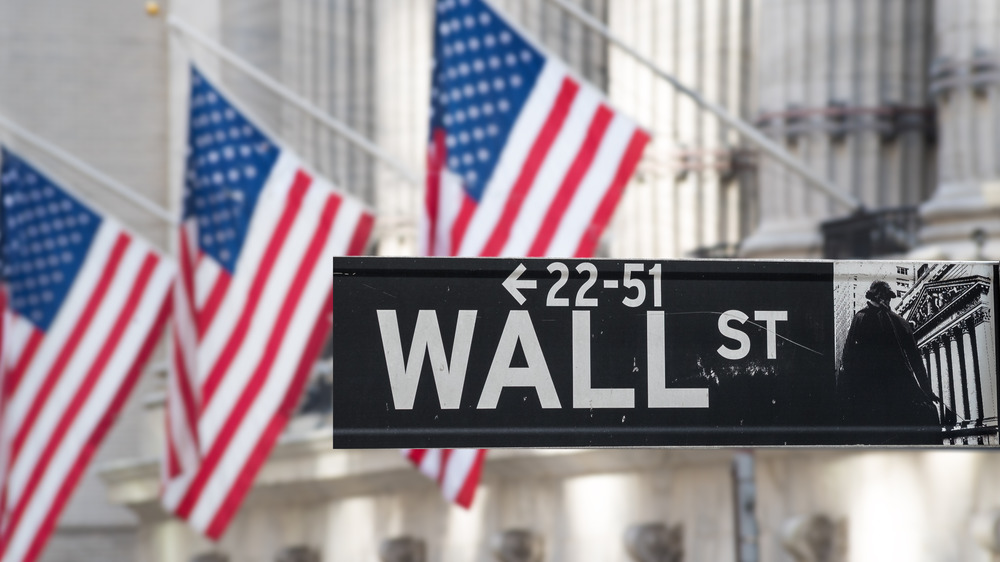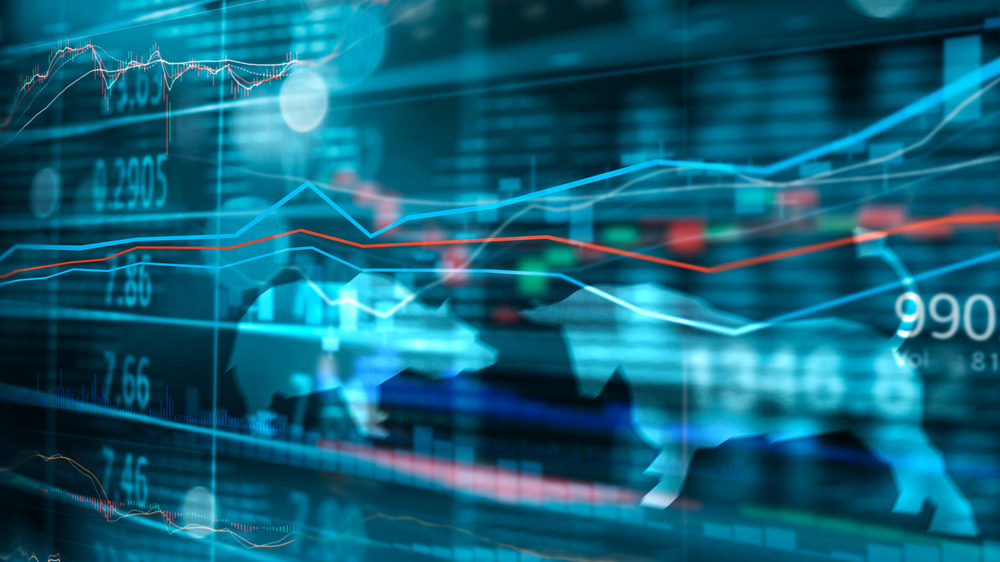Reddit's Shake-Up Of The Stock Market Explained
At present on the r/WallStreetBets subreddit, you'll see a video clip of the "chateau fight" from the Matrix: Reloaded. Neo halts about a hundred bullets in midair, masterfully fights off a bunch of dudes using ancient hand-to-hand weaponry, and makes it out only mildly unscathed. On top of the meme, you'll see a montage of financially related quotes, statements, rebuttals, and replies that personify the battle of the "little guy" versus the "big guy," and the little guy profoundly "sticking it to the man" with a huge, waving middle finger. The mood is high, defiant, and victorious. And you know what? It's a fairly decent summary of the fairly complicated and confusing Reddit-GameStop-HedgeFund madness currently going on.
So what happened, exactly? Essentially, it boils down to a group of small, independent investors on Reddit — who hang out on the r/WallStreetBets subreddit — deciding to rescue failing video game retailer GameStop by buying its stock at a low cost, as The Guardian explains. Why? Well, hedge funds such as Citron Research and Melvin Capital decided to bet that GameStop was going to die and wanted to make a profit off of it, in a strategy dubbed "short selling," or "shorting," per NowThisNews. Instead, the Reddit-based investors drove the value of GameStop's stock sky-high in a turnaround called a "short squeeze." As a result, big hedge funds have lost nearly $6.7 billion and are facing bankruptcy (Melvin has already requested a $2.75 billion bailout).
A truly Robin Hood-like group of small investors
The seeds for this next-level game of financial fencing were sown last September, when Ryan Cohen — founder of online pet food store Chewy — started rallying the troops on r/WallStreetBets after taking a 13 percent stake in GameStop, as explained by The Guardian. This happened during COVID-19, when GameStop and many other retailers were hit hard by the pandemic. In April 2020, GameStop's stock was valued at a mere $3.25, and it was intending to close 450 stores in 2021. And now? As of January 29, GameStop's price is fluctuating a bit, but hovering around $200 per share (Apple is worth about $140 per share, for comparison). On Wednesday, January 27, GameStop closed at $347.51 per share, and some estimate it might reach $420 per share by April.
And all the independent investors who jumped on board to stick it to the big hedge funds? They earned a boatload of money, acted out on their disdain of traditional financial traders, and gamed the system in their favor. "I can now write my mom a check and put my sister through lymes treatment," The Guardian reports one saying. Others, per NowThisNews, have talked about paying off student loan debt, while an entire subreddit called r/WSBGivesBack has cropped up to discuss ways to give profits back to local businesses, as well as charitable donations related to teen suicide, indigenous peoples, reproductive rights, protection for those facing domestic violence, and more.
Controversy, pushback, and upheaval on all sides
On CNBC, billionaire investor Chamath Palihapitiya described the Redditors' actions as "pushback against the establishment." And of course, "the establishment" is quite unhappy with what they consider to be irresponsible trading. Prominent investor Michael Burry called the move "unnatural, insane and dangerous," per CNET, and others have analogized the Redditors' actions to a "Ponzi scheme."
The irony in these claims can best be summarized by Alexandria Ocasio-Cortez in her Thursday tweet: "Gotta admit it's really something to see Wall Streeters with a long history of treating our economy as a casino complain about a message board of posters also treating the market as a casino." Along the same lines, former Secretary of Labor Robert Reich tweeted, "If Redditors rallying GameStop is unacceptable market manipulation, what would you call it when greedy Wall Street bankers gambled away our entire economy in 2008 and faced no consequences?"
The Securities and Exchange Commission (SEC) stated that they are "aware of and actively monitoring" the Reddit-inspired "market volatility," per NowThisNews. European markets are being affected, as well, as Yahoo News explains, but only after the U.S. Federal Reserve decided to take a pessimistic stance on the U.S. economy in response to GameStop's recovery. And in a capitalistically true "too big to fail" — and possibly highly unethical — move, the app that was used for much of the Redditors' trading, Robinhood, outright blocked further movement of GameStop stocks, as The Guardian explains.
A glimpse of the future of investment?
The Redditors' "David and Goliath battle" has also caught the attention of the White House, as The Guardian explains, who is also "monitoring" the situation. Even humanity's resident alien-in-chief Elon Musk has stepped up on Twitter to praise the Redditors using meme-speak, "Gamestonk!!" ("Stonk" is slang for stock.) Of course, this caused GameStop's price to rise even more.
The Guardian outlines a host of other businesses, particularly AMC Theaters and Blackberry, who were roped into the investment tete-a-tete and also experienced stock surges over the past week. They, and other companies such as Bed, Bath, and Beyond, Nokia, American Airlines, and even Blockbuster (with only one physical store left in the country) have been targeted as future candidates for "short squeezes."
Wall Street's big fear is that these kinds of nontraditional tactics will become commonplace. Vox describes younger, independent traders upending the status quo by viewing stocks and trading as a game that needs to be less "boring." This rather modern perspective falls outside huge investment titans' realm of predictability. Billionaire investor Leon Cooperman equates nontraditional investment actions such as that of r/WallStreetBets with caprice and "stupid things," while Oaktree Capital co-founder Howard Marks states, "it's not healthy to have people buying stocks for fun."
Meanwhile, in old and unsurprising news, it's also not healthy for an economy to be bound to the fate of a few, giant corporate monoliths.



